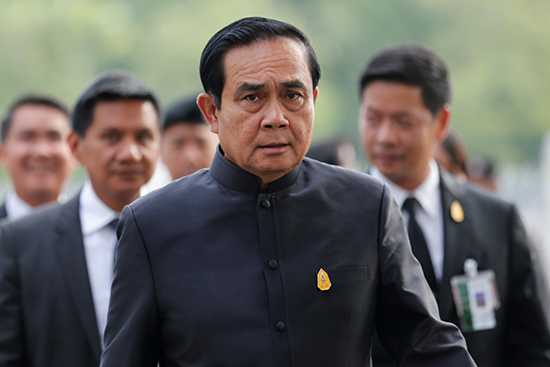Washington, December 8, 2016–Thailand’s military government should stop harassing and threatening the BBC with criminal prosecution under laws that bar criticism of the Thai royal family, the Committee to Protect Journalists said today.
Special Branch Police chief Major General Chayaphol Chatchaiyadech said on Wednesday that police would summon the BBC Thai language service’s editor, website administrator, translators, and other staff for questioning over a story published to the broadcaster’s website on December 1 that assessed new King Maha Vajiralongkorn’s personal history as he ascended to the throne. News reports said authorities are gathering evidence in pursuit of possible charges against the BBC.
“Authorities should stop threatening the BBC and all media that have candidly covered Thailand’s royal succession,” said Steven Butler, CPJ’s Asia program coordinator. “If Thailand wants its royal transition to be viewed as credible, both locally and internationally, then the government should allow the media to do its job of reporting fairly and independently, without fear of reprisal.”
The article in question, published without a byline by the BBC’s Thai language service’s bureau in London, has since been blocked by Thailand’s Ministry of Digital Economy and Society, according to news reports. Police visited the BBC’s Bangkok bureau on December 6, but the office had been closed and its signs taken down since December 2 in anticipation of a possible raid, news reports said. Chayaphol denied that police had raided the BBC’s office, the reports said.
Legal threats have come from the highest levels of government. Prime Minister Prayuth Chan-ocha yesterday said that legal action would be taken against BBC staff if they were found to have broken any laws. Deputy Prime Minister Prawit Wongsuwan said on December 6 that he had ordered an investigation into the story and that any BBC staff found to have “broken the law and caused damage must be dealt with,” the English-language Bangkok Post reported.
Violations of Thailand’s lѐse majesté law, outlined in article 112 of the criminal code, carry a maximum sentence of 15 years in prison. Authorities have ramped up harassment of the media, including through censorship and intensified surveillance of social media platforms, since the October 13 death of King Bhumibol Adulyadej, according to press reports.
On December 3, police arrested student activist Jatupat Boonpattararaksa on lѐse majesté charges for sharing a link to the BBC story on Facebook, news reports said. He has since been freed on bail, the reports said. The investigation into the BBC is related to the charges filed against the activist, news reports said. Thai authorities had not filed any charges against the BBC or its staff as of late today, a BBC representative told CPJ, speaking on condition of anonymity because he was not authorized to speak to the media.
Thai media have featured hagiographies of both Bhumibol and Vajiralongkorn since the former’s death in mid-October. Foreign media outlets have aired and published more critical assessments, but have not faced the same legal threats as the BBC. Deputy Prime Minister Prawit said on December 6 that authorities are monitoring recent foreign reports on the monarchy to see if any have been “incorrect,” reports said.
At least one Thai journalist, Somyos Preuksakasemsuk, is currently imprisoned in Thailand on a lѐse majesté conviction, according to CPJ research.
